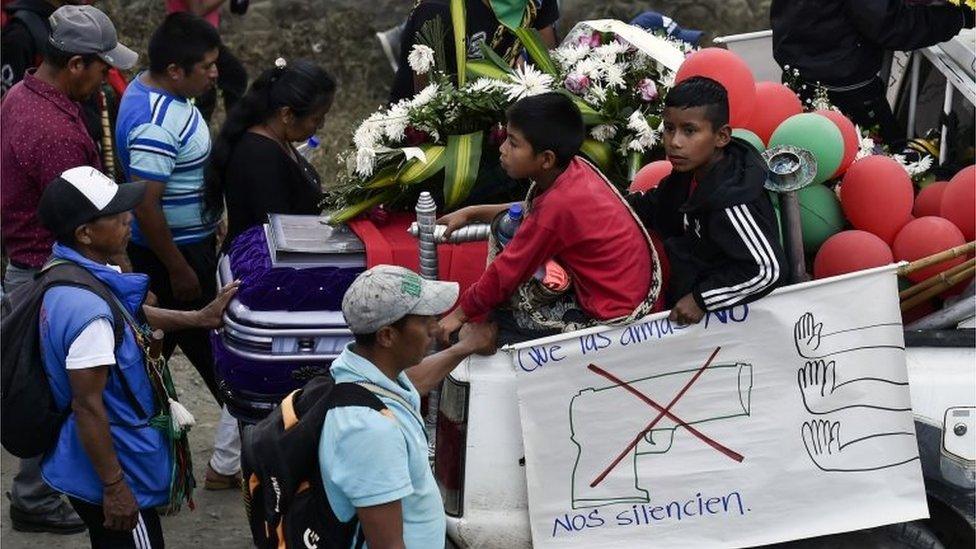Indigenous Colombians rally in Bogotá over killings
- Published
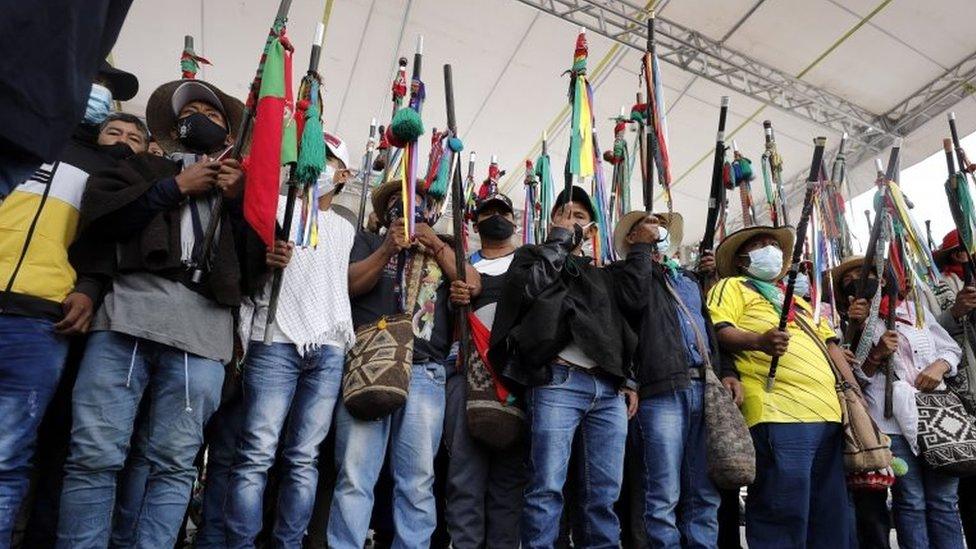
Protesters raised their batons during a symbolic "impeachment" of President Iván Duque
Thousands of indigenous people have rallied in the Colombian capital, Bogotá, at the end of a long protest march against an increase in violence in their territories.
Outside the presidential palace, they demanded talks with President Iván Duque. He has refused to meet them.
The protesters accuse the government of ignoring a rise in murders of indigenous leaders.
They also demand to be consulted on major development projects.
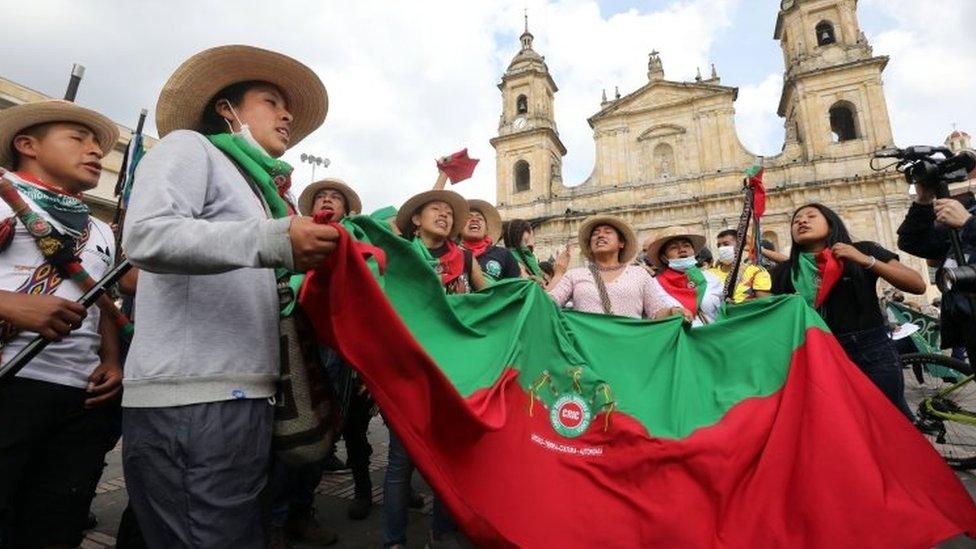
More than 6,000 indigenous Colombians were protesting in the capital
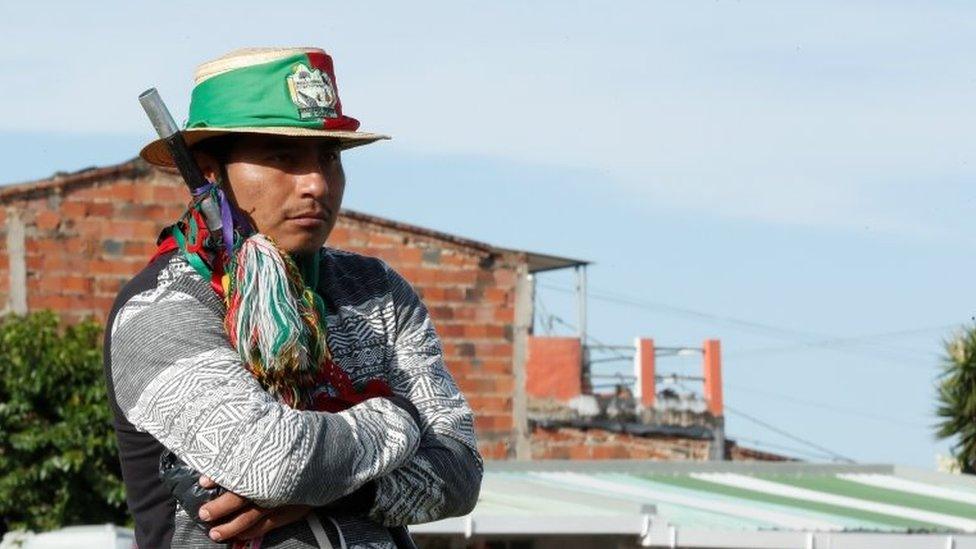
Many of them carried their traditional batons, a symbol of authority
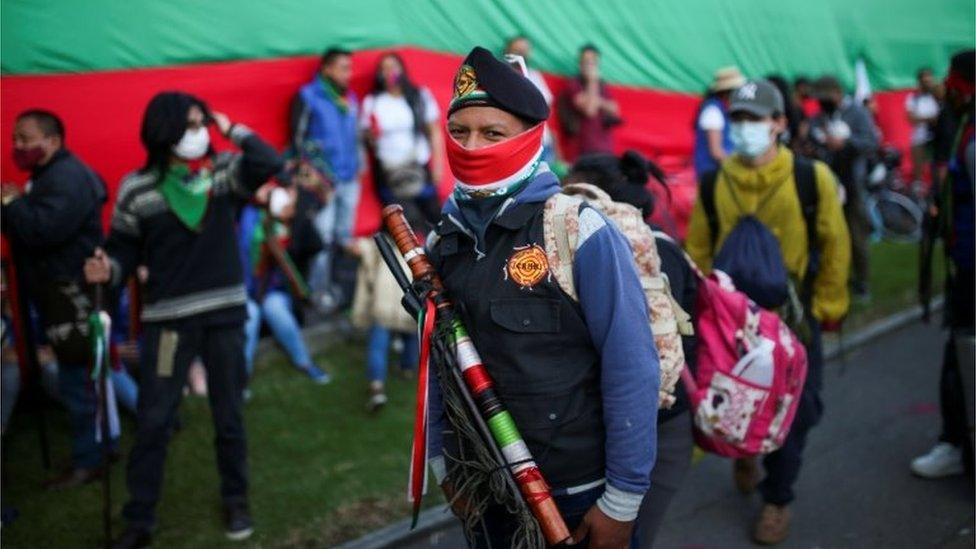
The march is a protest over an increase in violence in the indigenous territories
More than 6,000 indigenous Colombians arrived in Bogotá on Sunday after travelling more than 600km (375 miles) first from the Cauca region that is their home to Cali, where they had hoped to meet President Duque last week.
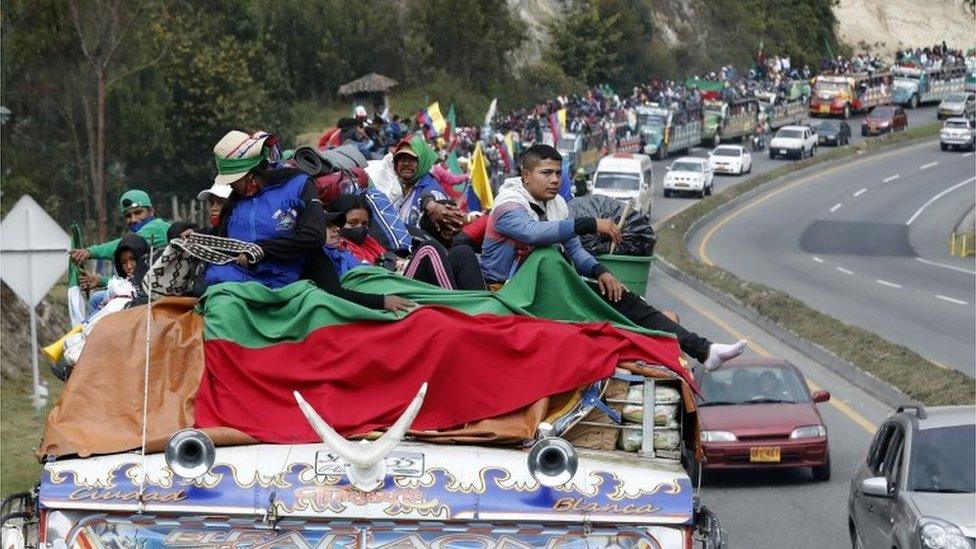
From Cali, they travelled in a caravan of open-sided buses to Bogotá
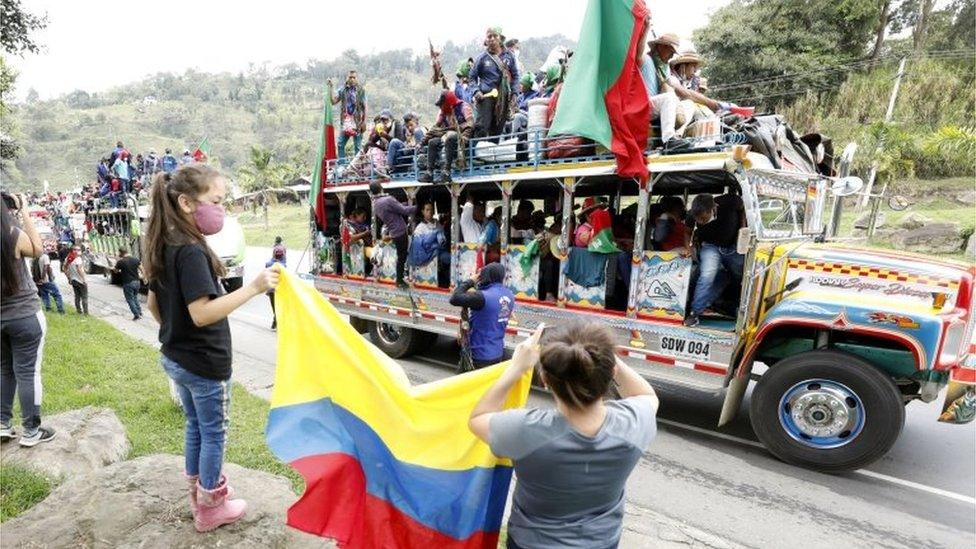
In many places, they were cheered on by local residents
When that meeting did not materialise on 12 October, they carried on to Bogotá.
During their trek they have been joined by social activists and Afro-Colombians who say they face similar challenges to those of the indigenous community, such as being caught in the middle of confrontations between the security forces and armed groups.
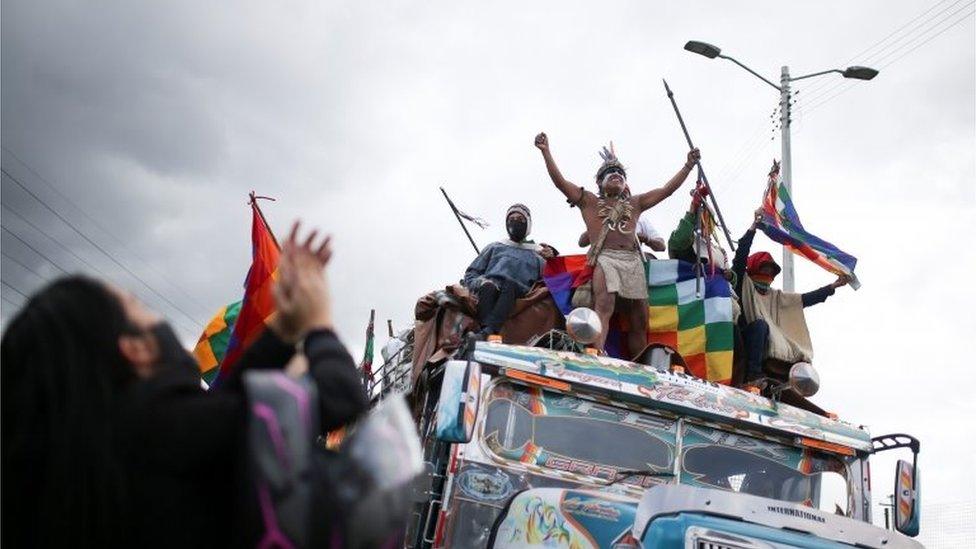
Many of the protesters were dressed in traditional clothes
The mayor of Bogotá, Claudia López, organised for the city's main sports centre to be used as an overnight base for the protesters.
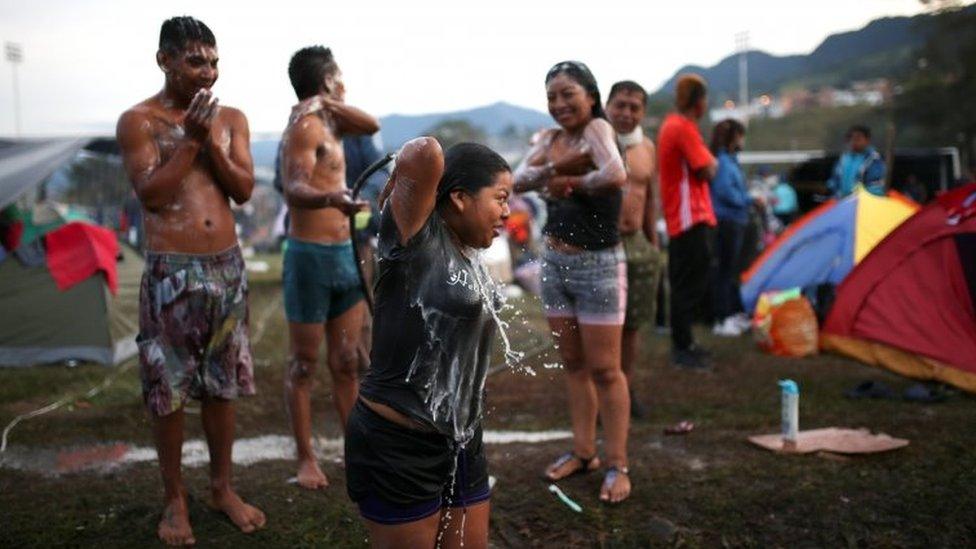
They have been camping along the way but, in Bogotá, the mayor opened the sports centre for them
Aparicio Ríos, the leader of an indigenous territory in Paniquitá, in Colombia's south-western Cauca province, said that they wanted to denounce the systematic killings of indigenous leaders as well as the lack of engagement by the government with indigenous communities.
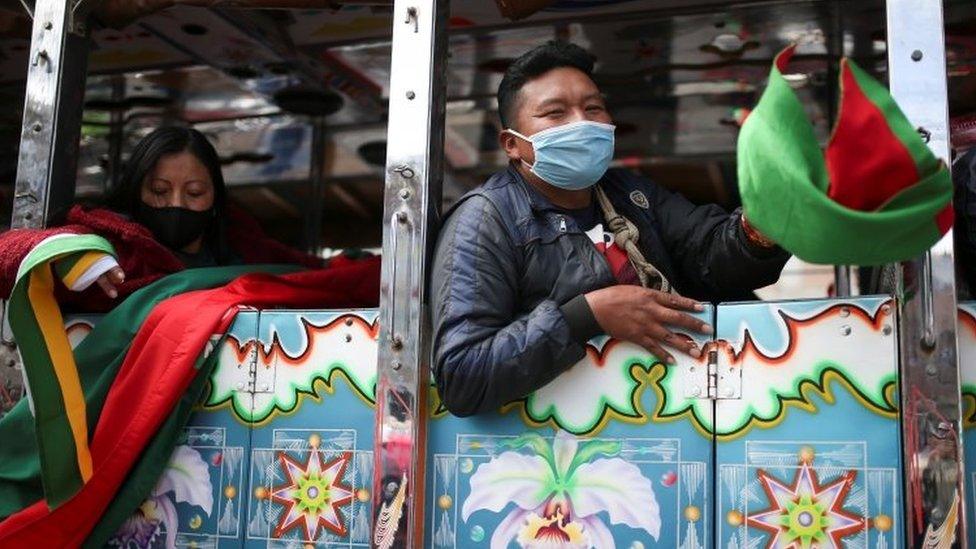
The demonstrators say the government has ignored a rise in murders of indigenous leaders
The indigenous groups in Cauca province have been caught in the middle of Colombia's decades-long armed conflict.
Even after the signing of a peace agreement between Colombia's left-wing Farc rebels and the government in 2016, indigenous groups continue to be targeted by right-wing paramilitaries and dissident rebels who oppose the peace agreement.
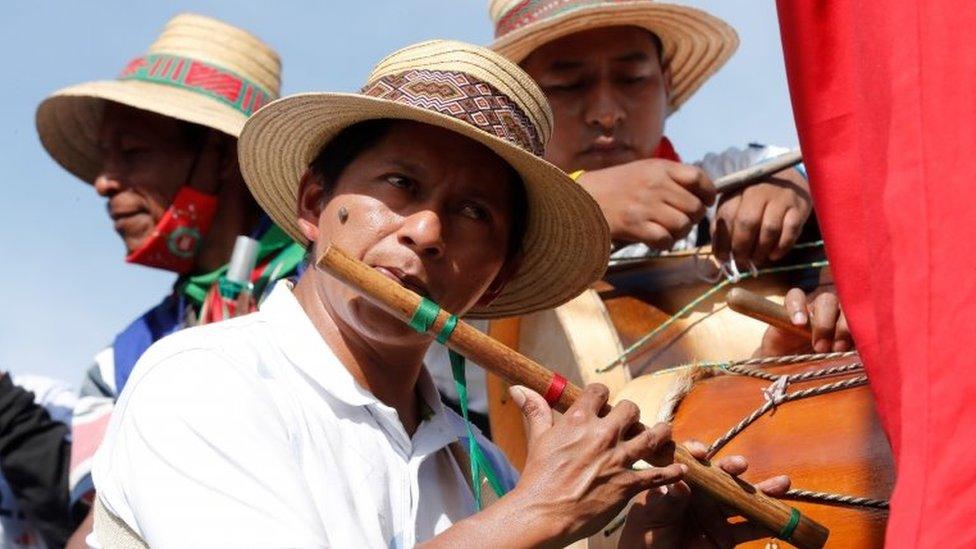
In total there are about 7,500 protesters
In light of the attacks, indigenous groups have organised protest marches and in some cases have demanded that security forces leave their land as they argue that their presence attracts rebel attacks.

You may want to watch:
Nasa people bid farewell to members of their community who were killed
All photos subject to copyright.
- Published17 September 2020
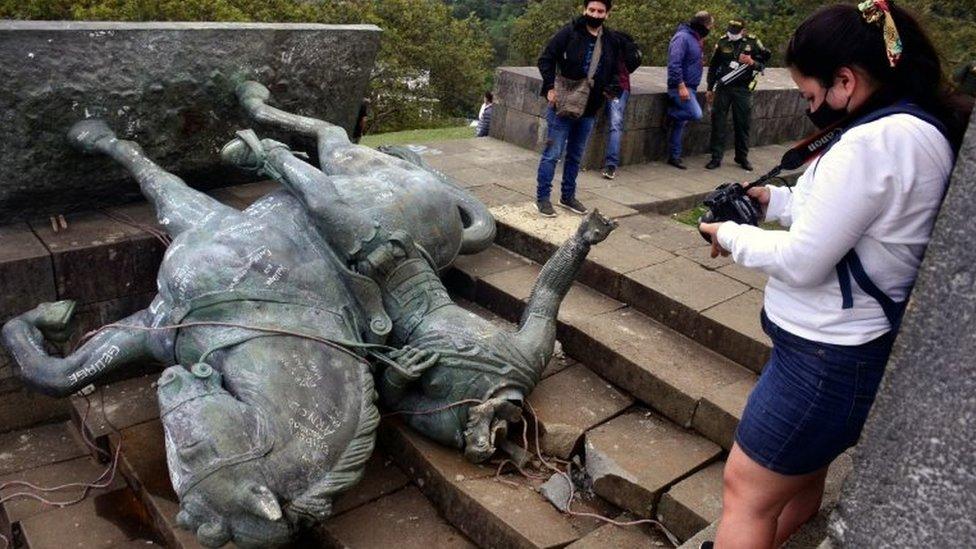
- Published17 August 2020
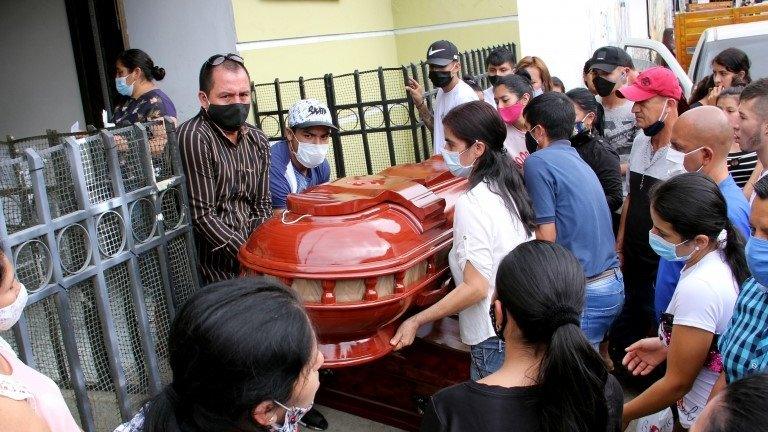
- Published30 October 2019
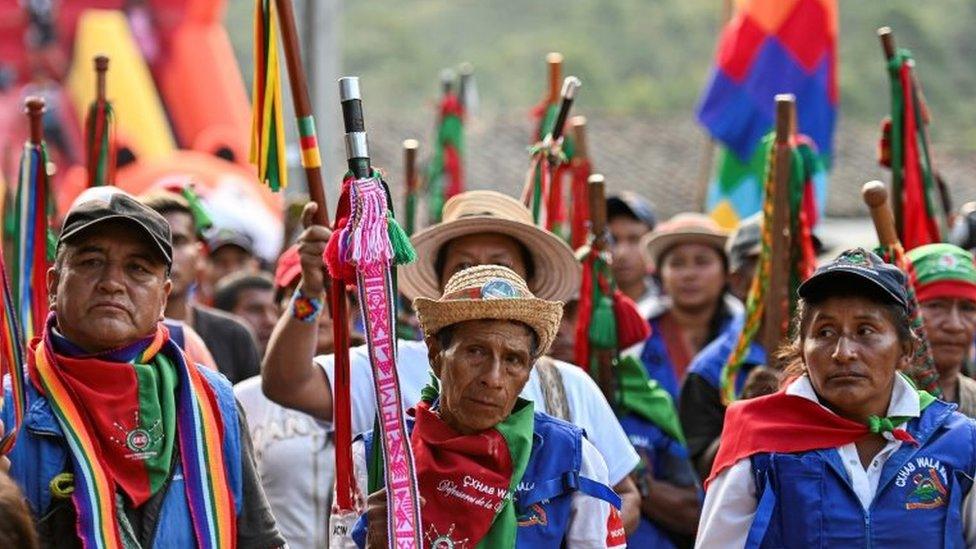
- Published14 August 2019
